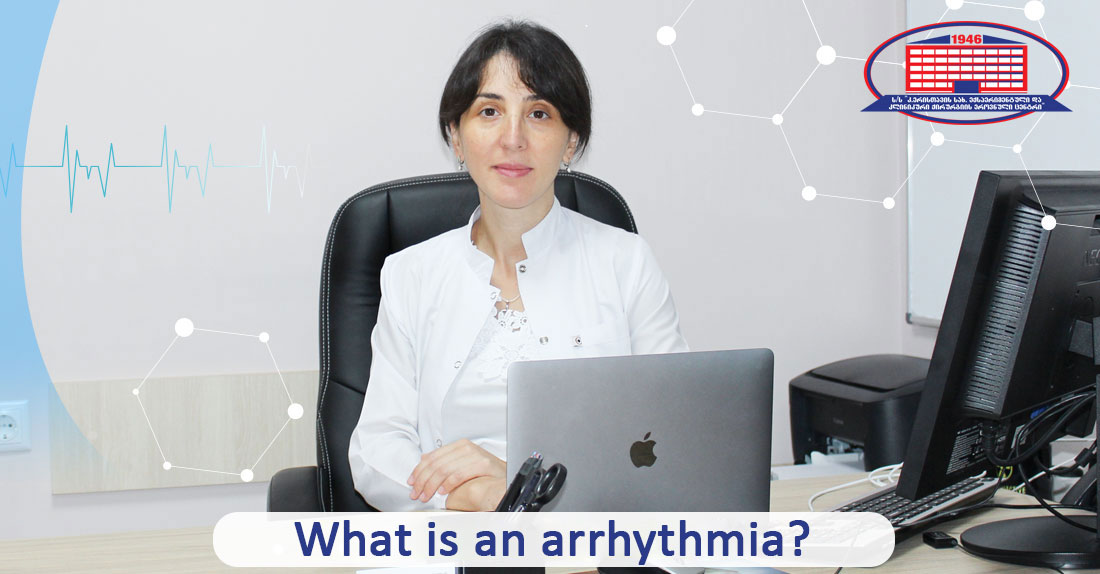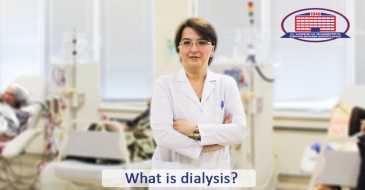
Pulse as a mirror of the state of the cardiovascular system
In the interview you will learn the following information:
- Etiology of the disease;
- Types of arrhythmias;
- Symptoms of heart pathology;
- Cardiology Service of the National Center of Surgery.
Arrhythmia is a pathological condition, in which the rhythm of the heartbeat and the sequence of contractions of the ventricles are disturbed. This is a general name for a pathology, characterized by any type of deviation from the normal state of the heart. There are several types, each with its own set of symptoms and causes.
Rhythmic vibration of the heart, allows us to determine the state of the vascular system.
Attacks of the disease can occur at any age, including in children.
Pathology is innate or acquired.
We are talking to Tatia Avaliani, a cardiologist at the National Center of Surgery.
– How many types are there and how do the types of arrhythmias differ from each other?
– There are several types of arrhythmias that vary in heart rate and location of onset. Basically, they are divided into tachycardia and bradyarrhythmias.
Basic types of arrhythmias
- Tachycardia –A condition, in which the heart rate exceeds 100 beats per minute. If it develops as a result of heavy physical activity, it is considered normal, while appearing during rest may indicate some pathology;
- Bradycardia –This is the type, in which the heart rate is less than 60 beats per minute;
- Paroxysmal tachycardia–Typically, in this case, the heart rate reaches 200 beats per minute. In such case it is necessary to call an ambulance, because it is a very dangerous condition that can provoke irreversible processes.
- Extrasystole– A condition in which the heart contracts prematurely and extraordinarily.
- Atrial fibrillation –The most common is that the heart contracts irregularly at this time.
In general, timely diagnosis is very important, as in some cases complications such as stroke, heart attack or irreversible pathologies may develop, most of which can be fatal.
Symptoms of arrhythmia
It is manifested by various complaints, therefore, attention should be paid to such symptoms as:
- common weakness;
- Pain in the chest area;
- Lack of air;
- balance disruption;
- Dizziness;
- Respiratory failure;
- Anxiety.
Most of the symptoms listed above may be due to a complaint of other disease, therefore, a differential diagnosis is necessary, for which the patient should consult a doctor in a timely manner.
Arrhythmias may be caused by other factors, including:
- Arterial hypertension;
- Valve pathology;
- Thyroid pathology;
- Excess weight;
- Alcohol consumption;
- Tobacco consumption;
- Congenital heart defects;
- Uncontrolled use of certain medications;
- Diabetes mellitus.
Arrhythmia treatment at the National Center of Surgery
Innovative methods of diagnosis and treatment are constantly introduced in our clinic, in this case the cardiology service is also distinguished. First of all, the team of professional doctors, which is a leader not only in the treatment of arrhythmias, but also in the treatment of various heart pathologies in general, is always ready to help the population.
Electrocardiographic and ultrasound examination are performed with the latest medical equipment, as well as 24-hour combined monitoring by "Holter" method.
In patients with postinfarction, unstable angina and heart failure, it is important to monitor heart rate variability, determining the complicated risk, adjusting the optimal regime of work and rest, to determine the arrhythmia, to specify its type and to determine the treatment tactics, the following diagnostic methods are used:
- Echocardiography;
- Electrocardiography;
- Determination of lipid spectrum;
- Holter monitoring;
- Load test - Treadmill;
- Coronary angiography.
In terms of additional studies, the following hardware researches are conducted:
- Study of thyroid function;
- Computed tomography.
Timely treatment significantly reduces the risk of developing cardiovascular disease.
The National Center of Surgery, being on guard, constantly offers a variety of promotions or discounts on cardiovascular pathology researches.
Wish you health!
What are patients interested in
coronarography
Qauestion:: My husband had a heart attack in May 2019 as per documents hereto attached and we are now looking for further treatment (either putting another stent or coronary artery bypass surgery (shunting), can you please advise the best focal point to contact to discuss method of treatment – either surgery or putting stent? I am sorry, the case history is in Russian and can be translated upon request. Thank you for your time!
Bradycardia
Qauestion:: I took a heart ultrasound that showed no pathologies. Albeit, I still have issues with my heart. I often feel my heart rate weakening, measured once it can be – 80 and if measured in 10 minutes, it can be 65-70. Can it be a heart pathology or neurosis? And besides ultrasound, is there any examination that detects hidden pathologies of the heart at your clinic and how much does it cost?
Arrhythmia
Qauestion:: Hello, I’m 16 years old and it’s been a month since the onset of following symptoms: a rapid heartbeat, I feel it in my hands, legs, back, as well as in my gastric cardia and I also feel the pulsation in the abdomen after I eat. What can be the cause of these?







